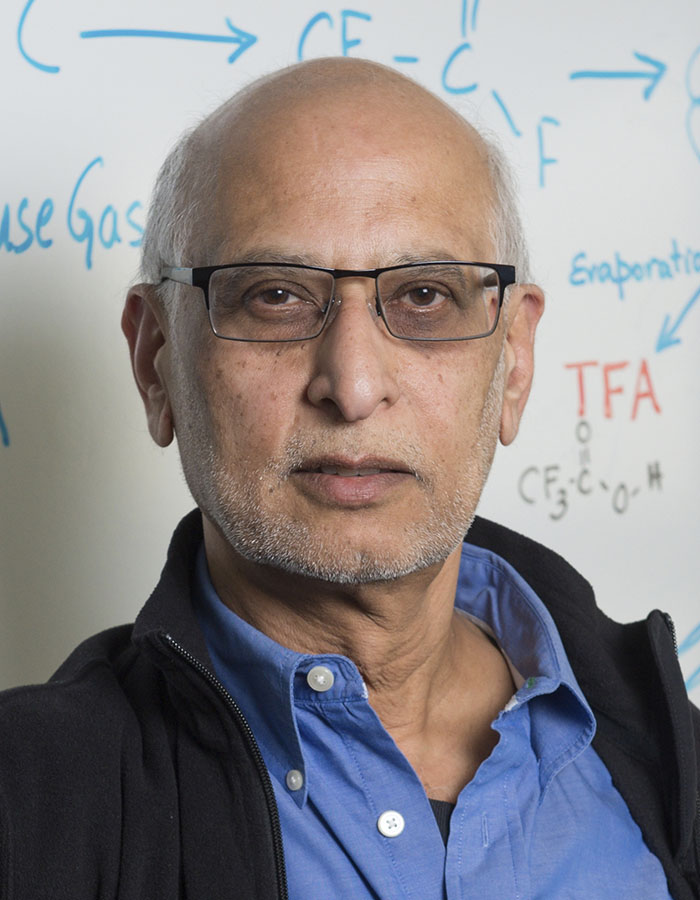Science: 1. Greenhouse Effect: 0.
 Chlorofluorocarbons, or CFCs, were banned by the 1987 Montreal Protocol to mitigate their impact on the greenhouse effect and indoor air quality. UF chemistry alumnus A.R. Ravishankara PhD’75 played an instrumental role in this accomplishment with an early paper he published about the harmful effects of CFCs.
Chlorofluorocarbons, or CFCs, were banned by the 1987 Montreal Protocol to mitigate their impact on the greenhouse effect and indoor air quality. UF chemistry alumnus A.R. Ravishankara PhD’75 played an instrumental role in this accomplishment with an early paper he published about the harmful effects of CFCs.
The phasing out of CFCs allowed a new contender for the top destroyer of the ozone layer: nitrous oxide, which is produced by agriculture and industry. Ravishankara turned his attention to this new threat, working with his colleagues at the National Oceanic and Atmospheric Administration to develop a chemical model for nitrous oxide’s ozone-depleting potential. In 2009, they announced that the effects of nitrous oxide could be even more destructive in 40 years than the pre-Montreal level of CFCs. Once again, Ravishankara provided the scientific backing to encourage regulation of ozone-depleting gases. Even so, Ravishankara embraces a kind of academic humility, noting that it’s taken several decades of environmental science to address the problem of ozone depletion — and the fight is not over. It also requires an interdisciplinary approach. “There is so much fundamental chemistry and physics in [environmental issues],” he says. As a double major in those two disciplines, he certainly set off from a strong place, with generous intellectual support from his UF thesis advisor, Professor of Chemistry Robert Hanrahan.
He arrived at UF for graduate studies in 1971 and says he found that Hanrahan and his other professors were fully invested in their students’ development. They championed research done well and for a purpose — a concept called Pasteur’s quadrant. “Louis Pasteur said, ‘There is no such thing as applied science, only the application of science,’” he says. “Research and teaching are extremely coupled.” However, he says there’s always more to learn. “I learned more from teaching than my students did,” he observes. He keeps that in mind as he mentors his own students at Colorado State University.
That philosophy of lifelong learning keeps Ravishankara on his toes, ready to stand on the front lines of the battle against ozone-depleting gases. “I’m very grateful for the education I got at Florida,” says Ravishankara. “It really was instrumental in being able to do many things that I did.”